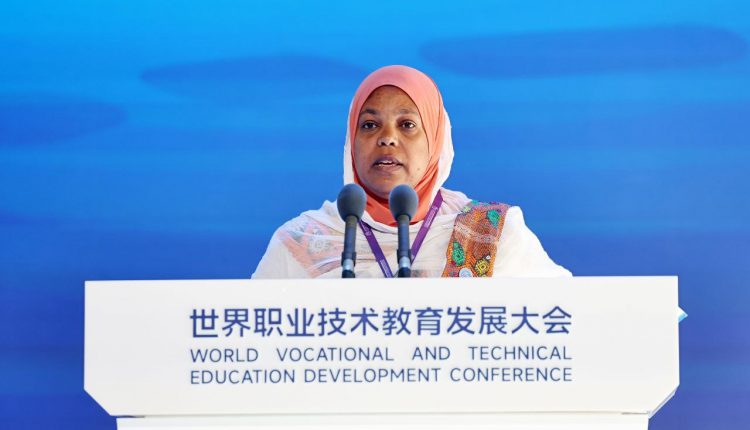Ethiopia prioritizes technical and vocational training for economic growth
Addis Ababa, November 21, 2024 (FBC) – Ethiopia is making significant strides in utilizing technical and vocational education and training (TVET) as a catalyst for sustainable economic development.
Minister of Labor and Skills, Muferiat Kamil, underscored this commitment during her participation in the Global Conference on TVET in Tianjin, China. Recognizing the potential of its young population, Ethiopia is strategically integrating TVET into its economic plans to equip the youth with practical skills, thereby fostering economic growth and job creation.
In line with Prime Minister Abiy Ahmed’s vision, Ethiopia is prioritizing green economic development. Muferiat stated, “We have strategically positioned Technical and Vocational Education and Training at the heart of our development agenda, viewing it as a gateway to multiple opportunities, particularly in job creation and entrepreneurship.” This focus ensures that TVET programs are tailored to meet the demands of emerging green industries, securing a sustainable future for the country.
During her address, she emphasized the importance of global cooperation, saying, “By pooling our knowledge, resources, and best practices, we can significantly enhance our training systems and effectively tackle common challenges such as unemployment and skill mismatches.” Muferiat is actively seeking partnerships with other nations to share best practices and strengthen Ethiopia’s TVET system.
Furthermore, Ethiopia is set to host an international forum dedicated to vocational training, providing a platform for global dialogue and collaboration, which will further solidify the country’s position as a leader in TVET. Muferiat highlighted the positive impact of partnerships with the Chinese government and other stakeholders, noting that these collaborations have led to the successful implementation of TVET programs that enhance the skills of the Ethiopian workforce.
She also stressed the need for educational reforms, stating, “Our approach to skills development is fundamentally anchored in the principle of lifelong learning. We are creating flexible pathways that allow our citizens to continuously upgrade their skills, adapt to emerging technologies, and seize new opportunities in an ever-evolving global economy.” This approach aims to empower graduates with the knowledge and abilities required to thrive in the modern job market.
By prioritizing TVET and fostering international cooperation, Ethiopia is well-positioned to achieve its economic goals and create a skilled workforce capable of driving sustainable development. As Muferiat concluded, “Together, we can build a future where skills truly become the currency of opportunity and innovation.”


